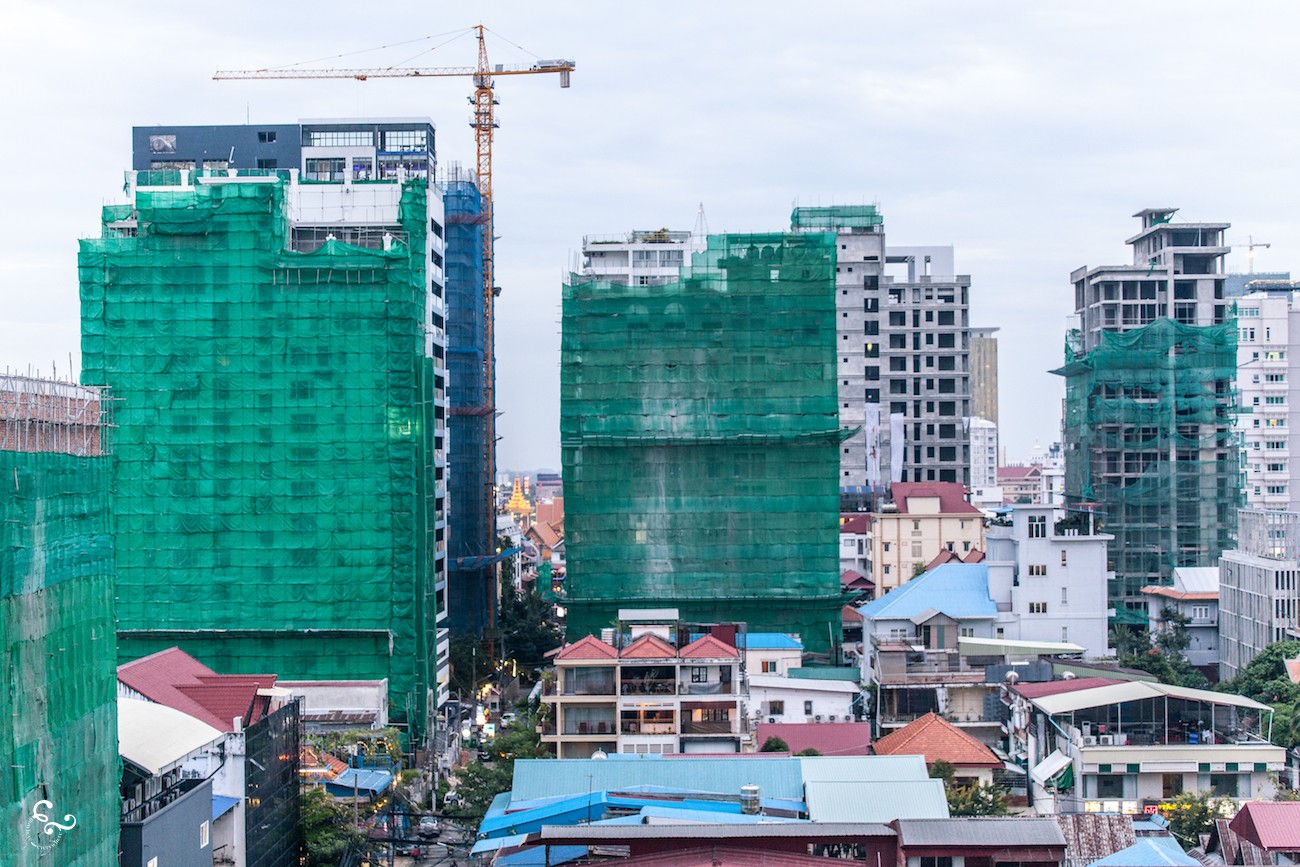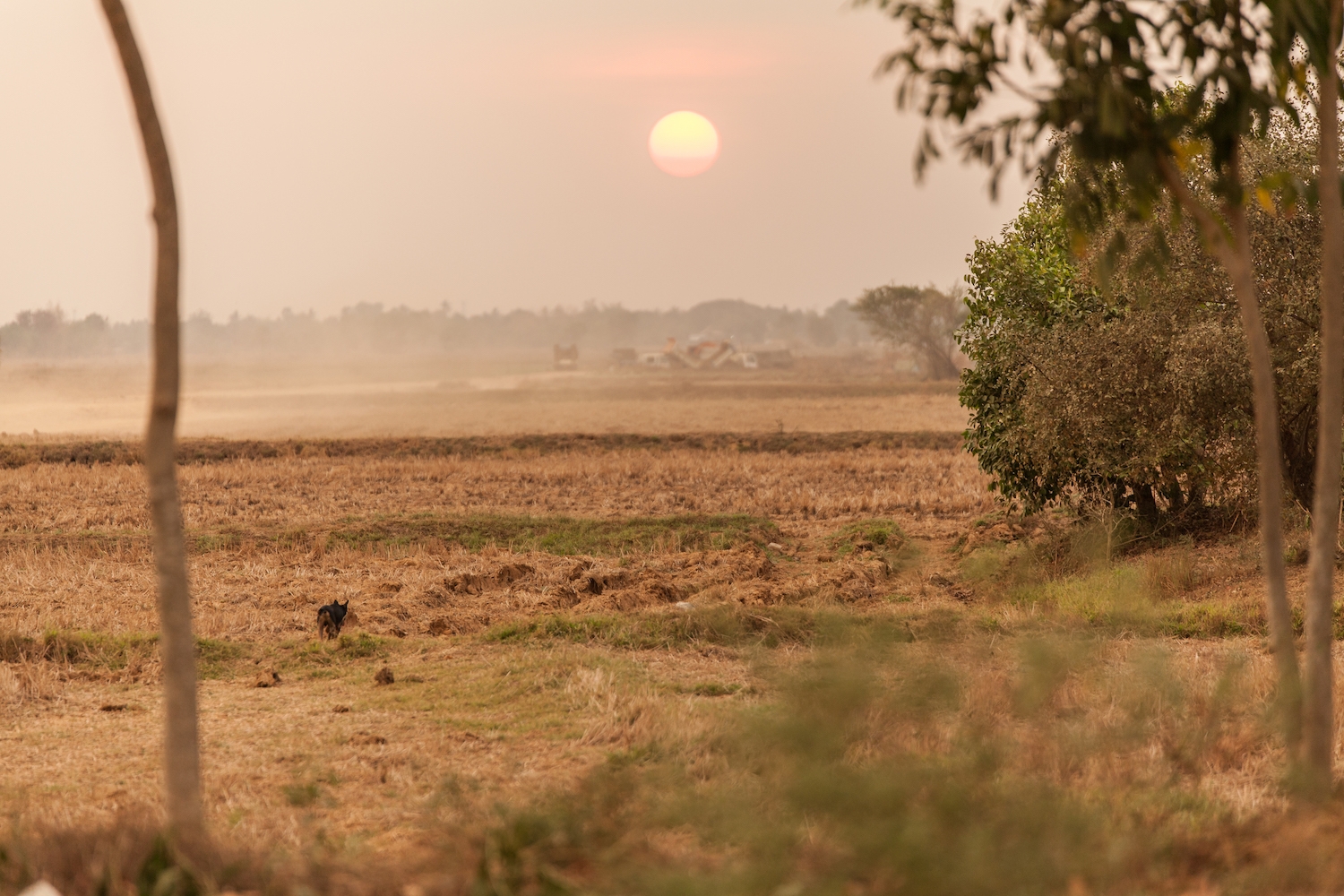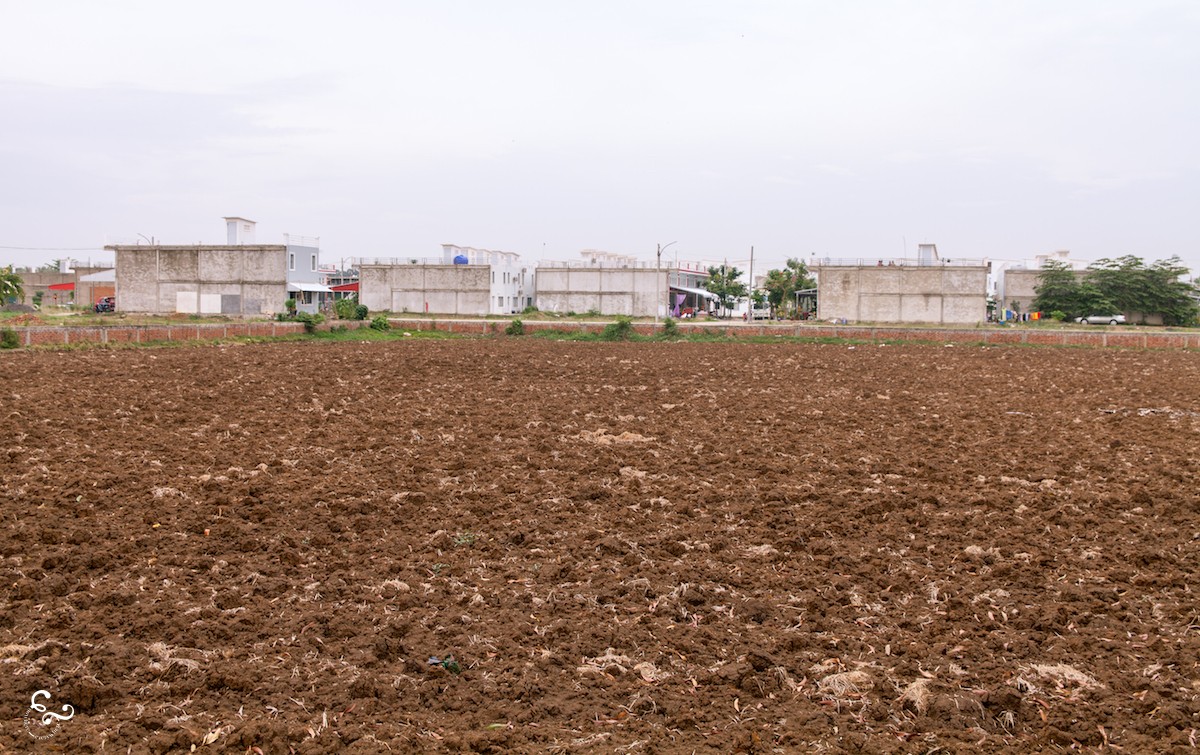Along the roads of Sihanoukville, a previously sleepy spot on the coast in Cambodia, a town has transformed into a booming casino city. Only a few backpackers are left (those that haven’t read the latest internet reviews). The famous islands will soon be completely developed. In years gone by Koh Rong could not list a money machine (ATM) as one of its features, but soon will likely be filled with resorts. The sparkling buildings and high-rises stretch across the roads on the mainland. It wasn’t that long ago when locals saved up all their money to holiday here in the little guesthouses and play by the sea. Nowadays the Chinese have moved in. Prices have skyrocketed. Locals all but pushed out. I’m yet to witness a boom in decent (read ethical) local jobs or genuine transfer of higher skills thanks to the Chinese moving in.
Strategically the port city was important in the Belt & Road Initiative (the same one to increase China’s influence in low-income countries). It gives closer access to the contested southern seas and is an easy gateway into all of South East Asia. Nearby a Chinese military runway is seemingly being built. Just outside of town sits a brand new coal power plant built by the Chinese. More are in development. The convivial relationship between the two countries is based entirely on economics and eschewing the west. The EU recently pulled their funding for “democratic” elections after numerous abuses. Chinese funding does not come with the strings of other countries including free & fair elections, a perceived step toward gender equality and a little more government accountability. China of course stepped in to cover it. Cambodia is lax on human rights and environmental regulation (activists are routinely jailed or killed); a perfect complement to China which relies on unethical labor, lax health & safety practises and little regard for the environment. From the thousands of workers and machinery that are shipped in through the port, a new gleaming highway that will allow the transport of all these goods quickly to the capital is nearly complete.

The capital, Phnom Penh, is busy transforming too. In less than seven years it has gone from a poorer city to high rises now filling the air; it is barely recognizable. When spending time there many years ago I tuk-tuked my way through burning tyres and riots (not a common occurrence in Buddhist Cambodia) to get to my law exams at the embassy. The BK Lake district had been bought up by the Chinese to be filled in and everyone was evicted. The once promised buildings have not commenced and the area languishes whilst buildings go up around it. They’re poor quality and unlikely to be maintained. Over time they will deteriorate like other Chinese projects are want to do. Along with climate change and the drought, the booming infrastructure in the capital is also responsible for the power shortages rife across the country. China owns all the hydroelectric dams here. Environmentally these have potentially disastrous consequences. A number of them have already caused localized issues. More planned development along the famous Mekong River, on which 60 million people rely on for food security, would place it under threat. Eighty percent of Cambodians count on fish as their primary source of protein.
Across the world in Kenya, similar battles are being had. When I lived there a decade ago it was said just under half the media was owned by Chinese companies creating fertile ground for soft public propaganda. Kenya may potentially even relinquish control of its major, and lucrative, port in Mombasa to the Chinese due to an inability to pay their debts. This is seemingly part of the loan strategy. Now, as China moves to cut coal consumption domestically and support the renewable energy market at home, they’re trying to build – in consortium with the US and Oman – a coal plant in Lamu, the UNESCO world heritage island off the coast of Kenya. It would be Kenya’s first coal plant and it would devastate the region and the survival of those who have lived here for thousands of years. It’s not the only one. China is busy transferring pollution elsewhere, planning over 300 coal plants from Turkey, to Indonesia and the Phillipines.
According to the Global Coal Plant Tracker China already has more than 200 coal projects in 34 countries. The countries must pay back the loans, that’s how they hold these countries in debt to them. This is known as China’s “debt-trap diplomacy” and it has harsh consequences that appear to be banked on. In Sri Lanka China took control of the Hambantota port after the country failed to pay back a loan. Back in Lamu, dredging for the port has already destroyed mangrove forests, coral reefs, and traditional breeding areas for fish and other wildlife which local communities have depended on for their food and livelihoods for centuries.
China is now Africa’s largest trading partner. Residents of Lamu have been rising up. In my experience though Cambodians have been far more weary of the Chinese. They can’t say anything of course but in hushed conversations the undertone is clearly there. There’s also strong frustration. Chinese propaganda has not worked as extensively here as countries in Africa yet.

Is all this neo-colonialism? The Malaysian Prime Minister Mahathir Mohamad has previously warned China’s actions in Djibouti and Pakistan as a “new version of colonialism”. How do we talk about this? White people colonized much of the world horrifically. We aren’t post-colonialism. We still occupy lands and leave others to suffer and are often willfully blind to what we did. Settler-colonist nations have not resolved their own predicament with Indigenous peoples (often not recognizing they themselves are the problem living on stolen lands). Colonialism underscores many of the issues in low-income countries too. If countries want to trade and exchange their lands, resources and labor for money that is the decision of all our countries. Right?
Neocolonialism: the economic and political policies by which a great power indirectly maintains or extends its influence over other areas or people.
Colonialism: control by one power over a dependent area or people or a a policy advocating or based on such control.
Is what we in industrialized nations do, neocolonialism? We exploit the Congo for their resources so we can have iPhones and jewellery, and seem to enjoy creating wars for oil, influence and power. We extend debt to countries we once colonized and brutalized, destined to decades of poverty & suffering. We are all too happy to enlarge the scale of our benefits to the detriments of others. We export our virtues (or lack thereof), our capitalism and beliefs. We place embargoes and sanctions on other countries and pull political strings. How can we constructively talk about it given our history or our present? Our present environment, health and safety laws may be better than the Chinese depending on where we live, but they can also be woeful and reconciling our past is not an option.
China is of course one of the greatest success stories of capitalism, pulling hundreds of millions of people out of poverty, but it comes at an enormous cost to us all. And it is difficult to argue their actions are benevolent whilst they build coal terminals across the world. Domestically, the Chinese government isn’t creating huge solar farms, or desert revegetation projects of a scale we can’t imagine to benefit the environment. Or for votes. It’s to reduce health care costs for over one billion people. Or to placate people and quell any signs of an uprising. On the same page, most of our countries also do this and continue to devastate others to their exclusion and our benefit. We succeed off the backs of ruining lands & peoples in the exploitation of resources and capital. We create the systems to do so and then we justify those structures. Beijing needs raw resources. And products. And power. And in the process they’re using more renewable energy solutions than the rest of the world which is a good thing. Don’t western countries want exactly the same? Maybe it’s simply the population size that differs.
China’s influence isn’t limited to low-economic countries of course. Increasingly countries like Australia are reliant on – and play to – China’s needs. The tourism sector seeks to beckon increasingly wealthy Chinese tourists. Most of the iron-ore shipped out of Australia heads to China. The government even signed a 99 year lease to China of the port in Darwin; America’s strategic military base in Australia. Europe is beginning to push back against investment across the continent but its influence can be felt. And it’s getting busy in eastern countries, for example building an expensive mountain highway through Montenegro to Serbia to transport goods. Though they may go tit-for-tat on the ‘trade war’ front, the US clearly recognizes their economy is closely tied to China and aren’t willing to jeopardize this. As China moves away from cheap labor and into skilled resources, the sale of Chinese technology across the world is of increasing concern. Sometimes unfounded, sometimes well founded. Nearly always government influenced.
China has even been driven into cahoots with Russia. With climate change accelerating in the Arctic, thawing ice is opening new passages; passages the Chinese and Russians want to exploit. China can reduce its shipping time across the world significantly through this (they’ve dubbed it the Polar Silk Road) and both can drill for new gas. Closer ties (and much deeper investment) to Russia means this all becomes a lot easier. With both countries increasingly hostile with the US and Europe, this works out well. Russia sees the Arctic as a bet on their future wealth. Both are flexing military might with ice breakers and naval bases in the north.

The plans for a new development area in Sihanoukville, the new Chinese casino city. Rendering by developers, image located via The Guardian and this great article.
The environmental impact of all this has been devastating. With the biggest population in the world – edging close to one and a half billion – and increasing wealth, the destruction of our world continues to accelerate. In South America, large scale deforestation (including the Amazon) for cattle farming and soy & corn crops for agriculture is often fuelled by Chinese demand (alongside the States). Though the United States still holds spot number one for cumulative coal emissions, China currently emits far, far more as the coal powerhouse of the world and it will very likely overtake the States. Currently it isn’t curbing its emissions from coal in line with what its own government regulations required. CFCs, those carbons we banned for destroying our ozone layer, are illegally making somewhat of a comeback in China.
The fishing industry is also taking a particularly hard hit. China was recently ranked the worst country in the world on the Illegal Fishing Index. Their distant-water fishing fleet is the largest in the world by far. In Sierra Leone, one of the richest fisheries in West Africa, populations plummeted since the 1980s when Spain, Korea and the Soviet Union exploited the waters. Today, China accounts for 75% of Sierra Leone’s industrialized fleet. Heavily subsidized by Beijing (to the tune of approximately 28 billion over the past few years), China operates more vessels in West African waters than any other country. Roughly two-thirds of these are illegal costing billions in lost revenue and depleting stocks. It is having devastating impacts. One trawler can catch up to 100 tonnes in a day by dragging a net along the ocean floor. Small-scale local fishers who feed the community in comparison catch just 17 tonnes a year.
Ghana is facing the same problem. Illegal fishing by foreign trawlers, largely Chinese, are costing Ghana $50 million a year. Catches are sold in China and across the world so don’t benefit any local people; not via income and employment nor for food and nutrition. Gambia too is now starting to struggle as fishmeal demands from China take hold. The United Nations Food and Agriculture Organization (FAO) estimates 90% of our wild fisheries are overfished or at the limit of sustainability. We’ve lost two-thirds of the large predator fish in our oceans. China’s insatiable seafood desires account for a third of the world’s consumption. This figure will increase in line with wealth. The seas around China have next to no fish left.
Then there’s the wildlife trade largely due to Chinese demand. Tigers, rhinos, elephants, lions, pangolins and abalone are all, quite literally, on the chopping board. Their fate was threatened by the world’s encroachment of their territory and has likely been sealed with demand from Chinese buyers for horns, herbs, scientifically unproven healthcare, and status. The same goes for plant species like Rosewood. Illegal logging happens constantly across Thailand and Cambodia for this tree – all to ship to China.
What does a thoughtful discussion on this look like? Are there any governments that are willing to push back on this model? Are we in any position to given what many of our own countries do? What does the large portion of Chinese citizens think? The Belt and Road Initiative, a swath of commerce routes and fossil fuel expansion, is an exercise in mass-scale greenwashing and is a political front for exerting dominance across the world. China uses it (and debt financing) to build roads, railways, bridges and airstrips across the world for its own advantage. Even the northern Cambodian border town of Poipet is seeing a private airport built for Chinese casino tourism. Gas and oil pipelines and power plants are routinely built whilst ports are leased and commanded. We seem to be entirely inept at addressing this. We are failing to even have the discourse necessary to understand this at a public level; a debate that should be happening with unbiased and clear arguments from all parties involved.
In Cambodia, lands in some areas are changing quickly with Chinese development. Local, wealthy Cambodians are also increasingly buying up land to sell to the eventual move-in of Chinese residents to the area. Rice fields and farms are being converted into new villages and housing developments. Photo by Lis.

Personally, I get a little worried and overwhelmed with grief when revisiting places. I don’t have the solution to pulling people out of poverty whilst not implementing a capitalist system that thrives only when it detrimentally consumes and grows, in our current economic model. I was always highly uncomfortable with implementing a ‘western’ model anywhere else (as seen many a time in international development). I am also uncomfortable with a Chinese model. This isn’t the problem of course; my grief and privilege have nothing to do with the story. But it lodges somewhere deep inside. Phnom Penh and Sihanoukville have shocked me more than anywhere in terms of urban change. I got the chance to deeply explore the African continent just prior to the explosion of Chinese projects. I loved it. Nowadays friends there (locals) tell me some places would be unrecognizable. Railways to major ports. Rapid transit systems in cities. Disappearing animals I once captured through my lens, some extinct. Lands developed. Islands changed. Much of that is simply my own personal loss at seeing places shift so drastically. Everything built. Everything concrete. Everything destroyed. Everything busy. But I get to live a life where I can bounce between those extremes so that is purely privilege talking.
We outside of China are no champion of human rights either. We have often stood silent when faced with leaders carrying out abuses (even, still, in our own countries). I can also feel a well of discomfort in having this conversation without people from every affected nation loudly involved and guiding the way. And the juxtaposition in Cambodia is obvious. I stand in towns surrounded by crumbling colonial buildings the French built. I walk past signs reminding me of land mines which ultimately land at the feet of Henry Kissinger when he began dropping bombs, destabilizing a nation and creating fertile ground for the Khmer Rouge. France. The USA. Now China. It’s only different that I’m watching it unfold in real time. Every country believes their own justifications.
Is it exploitation or development? Those are often not mutually exclusive despite many definitions resting on their distinction.
Maybe Chinese deals will prove largely beneficial for the African continent and South East Asia. And Eastern Europe. And South America. Maybe it will pull many countries out of poverty too. Maybe they are all mutual, and fair, agreements. Maybe this is what the people want. Maybe it will make every city look just like every other. Maybe it’s the fault of high-income countries not investing in good projects. Maybe it is entirely the fault of colonizer countries who destroyed people, lands, ecosystems and any future relationships. Maybe it will accelerate climate change and the extinction of numerous species. Maybe it’s all about money. Maybe it will be fine in the future. Maybe where the west previously colonized, China has simply stepped in to do the same. Maybe that’s why it makes us feel funny. Maybe it’s about power. Maybe it’s all about military strength and ability. Maybe it’s simply investment. Maybe it’s neocolonialism. Maybe nobody cares.

